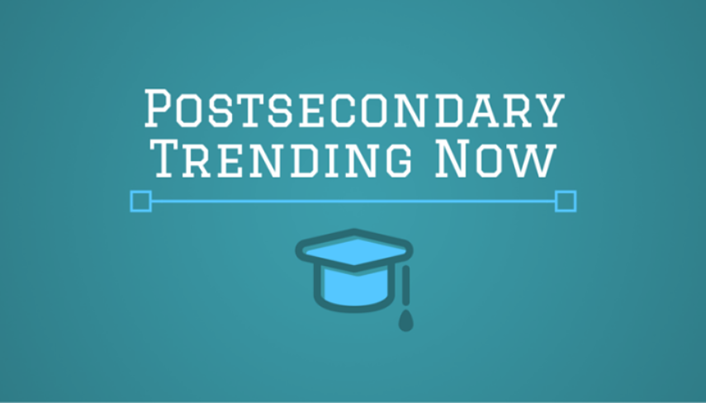
Student success can be measured by a variety of means, whether we're examining grades, retention data, or graduation rates. But it is first supported by the types of administrative services that have served as something of an afterthought in academia, until recently.
In 2015, EDUCAUSE selected and administered iPASS (integrated planning and advising for student success) grants on behalf of the Bill & Melinda Gates Foundation. Committees and teams were formed, and work kicked off remotely at 26 college campuses across the United States.
While the first year consisted of what I would call "solution seeking," it soon became clear that solving a problem via technology required some very real changes to institutional culture. An evolution from the inside out.
As any of us with experience in higher ed knows, cultural transformation is as challenging as it gets. Plenty of barriers exist, ranging from varying postsecondary political climates to internal fiefdoms and a general hesitance toward adopting new (potentially quite costly, and potentially very complicated) technologies.
That's enough to give anyone pause. Yet the leadership on the iPASS recipient campuses remained grounded in the fact that lasting or "sticky" cultural changes had to happen in order to allow institutions to embrace technology that would enable change.
As part of the EDUCAUSE team managing the effort, I helped facilitate change leadership workshops in 2016. We worked on breaking silos, collaborating across campus, and examining what needed to change, as well as how.
In our first round of site visits, we worked with institutional teams to reflect on their plans and implementation, and how the two intersected. That was one of the most rewarding parts, both for them and for us, as it brought us to think of a holistic approach to student advising and to the changes that needed to take place on their campuses.
On just about every campus I've visited, I've witnessed the changes in advising methods and the understanding of taking a more holistic approach to advising. It's clear that institutional teams need to have this mindset and these processes in place in order to best address complexities of students' lives, and especially those first-generation and under-represented student populations. In some ways, the technology has been coming afterwords: cultural changes are happening before tools are fully up and running. This, I must admit, was a surprise for me!
As the concern is a multifaceted one, there are many stakeholders involved. Some advising centers are much more decentralized than others. Efforts on a few campuses may require curriculum reform. We've seen concerns or other academic areas that will need to be looked at such as course offerings or curriculum changes, which have arisen as a result of the technologies that have been implemented. Some institutions have gone so far as to craft new positions in the area of student success to ensure this work gets done with sustained leadership.
Here are just a few promising highlights from the 2015 iPASS cohort:
- For example, transformation is taking place at Fresno State University, as they have deployed new advising methods and a student-facing planning tool in support of degree completion. More students are seeking advisement, and that is a good problem to have. It's all about empowering students. Now they are looking at including and leveraging the student voice in the story behind the change to ensure they continue to build on their initial buy-in to support the work that lies ahead.
- Middle Tennessee State University is another place undergoing some amazing changes, with advisers who are focused, supported, and motivated. They know their goals, they know their numbers, and they have tools to support their efforts. This is an institution with significant support from institutional leadership, from the president on down; they "walk the talk." They have witnessed clear results (such as a positive change of more than 7% in freshman progression) that led to continued success in improving overall retention results.
- After consistently growing their adoption and use of an early alert system — double-digit growth — Ramapo College has truly transformed how they support their students. They have leveraged their faculty and built a predictive model in-house that helps better inform what interventions are working for them. Their next phase is building out the student educational planning tools to support students in knowing exactly how to reach the finish line.
Advising in many ways is really a marriage of counseling and teaching. Asking students "What is your goal?" or "What do you want to do?" is a springboard to "OK, so how do we get you there?" and the ever-more-important "Is it a realistic goal, and if not, what options are available?"
Helping institutions provide much-needed supports for students to complete what they started — with some innovative tools along the way — continues to be an inspiring endeavor for us all. We can change lives!
Ana Borray is the director of iPASS implementation services at EDUCAUSE. Follow her on Twitter @ABorray.
